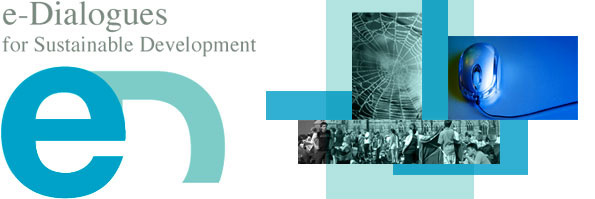WHAT THE FUTURE MAY HOLD: SOCIAL SCIENCES AND HUMANITIES IN THE NEXT DECADE
The e-dialogue is available for download here
February 2nd, 3:00 p.m. to 5:00 p.m. ET, 12:00 p.m. to 2:00 p.m. PT
Join us on-line for a critical real-time discussion on “What the Future may Hold: Social Sciences and Humanities in the Next Decade.” Listen in to our expert panel discuss the contributions the social sciences and humanities have made and are making to Canada’s innovation, competitiveness and well-being. The greatest challenge we face in responding to issues of the day is not necessarily one of scientific or managed origin, “it is about dealing with people and their diverse cultures, interests, visions, priorities and needs” (Norgaard, 1994).
This event is supported by the Trudeau Alumni Association.
Tune in to e-dialogues and register in the e-audience and ‘listen’ in to the expert dialogue, and ask questions of the panelists during the last hour. We would appreciate if you would share this announcement with your own networks.
Moderator
Ann Dale
 Ann Dale is a Professor at Royal Roads University, where she leads several research projects, including e-Dialogues for Sustainable Development and is active in the environmental movement.
Ann Dale is a Professor at Royal Roads University, where she leads several research projects, including e-Dialogues for Sustainable Development and is active in the environmental movement.
Participants
Chad Gaffield, President of Social Sciences and Humanities Research Council
 Chad Gaffield, one of Canada’s foremost historians, was appointed president of the Social Sciences and Humanities Research Council of Canada (SSHRC) on September 18, 2006. Gaffield came to SSHRC from the University of Ottawa, where he held a University Research Chair and was the founding director of the Institute of Canadian Studies.
Chad Gaffield, one of Canada’s foremost historians, was appointed president of the Social Sciences and Humanities Research Council of Canada (SSHRC) on September 18, 2006. Gaffield came to SSHRC from the University of Ottawa, where he held a University Research Chair and was the founding director of the Institute of Canadian Studies.
Noreen Golfman, Professor and Dean of Graduate Studies, Memorial University and President, Canadian Federation for the Humanities and Social Sciences
 Noreen Golfman is Dean of Graduate Studies and Professor of Film and English at Memorial University of Newfoundland. A founding member of the International Women's Festival, she has previously been the president of the Association of Community College and University Teachers of English (ACCUTE) and vice-chairperson of the Newfoundland and Labrador Film Development Corporation.
Noreen Golfman is Dean of Graduate Studies and Professor of Film and English at Memorial University of Newfoundland. A founding member of the International Women's Festival, she has previously been the president of the Association of Community College and University Teachers of English (ACCUTE) and vice-chairperson of the Newfoundland and Labrador Film Development Corporation.
John Robinson, Professor, Centre for Interactive Research on Sustainability, Institute for Resources, Environment and Sustainability, University of British Columbia, Member of the UN Intergovernmental Panel on Climate Change
 John Robinson is Professor in the Institute for Environment, Resources and Sustainability (IRES), and the Department of Geography at UBC. Dr. Robinson is a member of the Vancouver Climate Leadership Council, on the Board of the Sustainable Cities Foundation and the Pembina Institute, and on the Editorial Board of the journals Integrated Assessment, Ecology and Society and the Journal of Industrial Ecology. He is currently a Lead Author in Working Groups II and III of the Intergovernmental Panel on Climate Change.
John Robinson is Professor in the Institute for Environment, Resources and Sustainability (IRES), and the Department of Geography at UBC. Dr. Robinson is a member of the Vancouver Climate Leadership Council, on the Board of the Sustainable Cities Foundation and the Pembina Institute, and on the Editorial Board of the journals Integrated Assessment, Ecology and Society and the Journal of Industrial Ecology. He is currently a Lead Author in Working Groups II and III of the Intergovernmental Panel on Climate Change.
Caroline Andrew, Professor of Political Studies, University of Ottawa

Caroline Andrew has been with the University of Ottawa since 1971. A former
Dean of the Faculty of Social Science (1997 to 2005), she is currently a
full professor at the School of Political Studies and the Director of the
Centre on Governance. She is a nationally recognized authority on urban and
feminist studies as well as on cultural diversity.
Gisèle Yasmeen,Vice-President, Partnerships, Social Sciences and Humanities Research Council
 Gisèle has worked as a consultant for the UN FAO, the Canadian International Development Agency and the International Development Research Centre. From 2000 to 2003 she was a radio columnist for Radio-Canada and CBC in Vancouver. She was founding regional director of the Canadian Unity Council’s Centre for Research and Information on Canada for BC and the Yukon. Before coming to SSHRC in 2007, Gisèle worked for Elections Canada as senior director for outreach, communications and research.
Gisèle has worked as a consultant for the UN FAO, the Canadian International Development Agency and the International Development Research Centre. From 2000 to 2003 she was a radio columnist for Radio-Canada and CBC in Vancouver. She was founding regional director of the Canadian Unity Council’s Centre for Research and Information on Canada for BC and the Yukon. Before coming to SSHRC in 2007, Gisèle worked for Elections Canada as senior director for outreach, communications and research.
Frances Westley, JW McConnell Chair in Social Innovation at Waterloo University

Dr. Frances Westley is the JW McConnell Chair in Social Innovation at
Waterloo University and has recently published, Getting to Maybe: how the
world is changed. An interdisciplinary scholar, Professor Westley brings
expertise in social innovation and governance, the volunteer and civil
society sector, panarchy and organizational change management. Previously,
she was the Executive Director of the McGill McConnell Program for Voluntary
Sector Leaders, 1998-2004.

